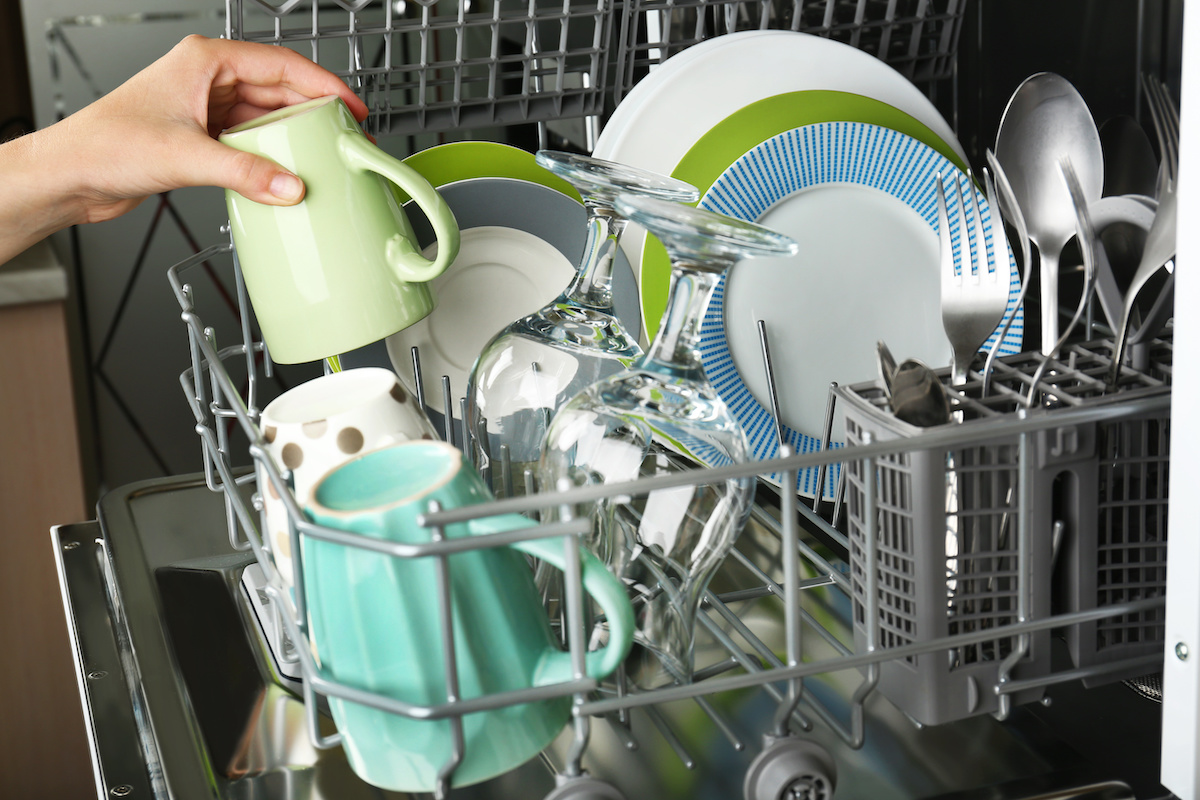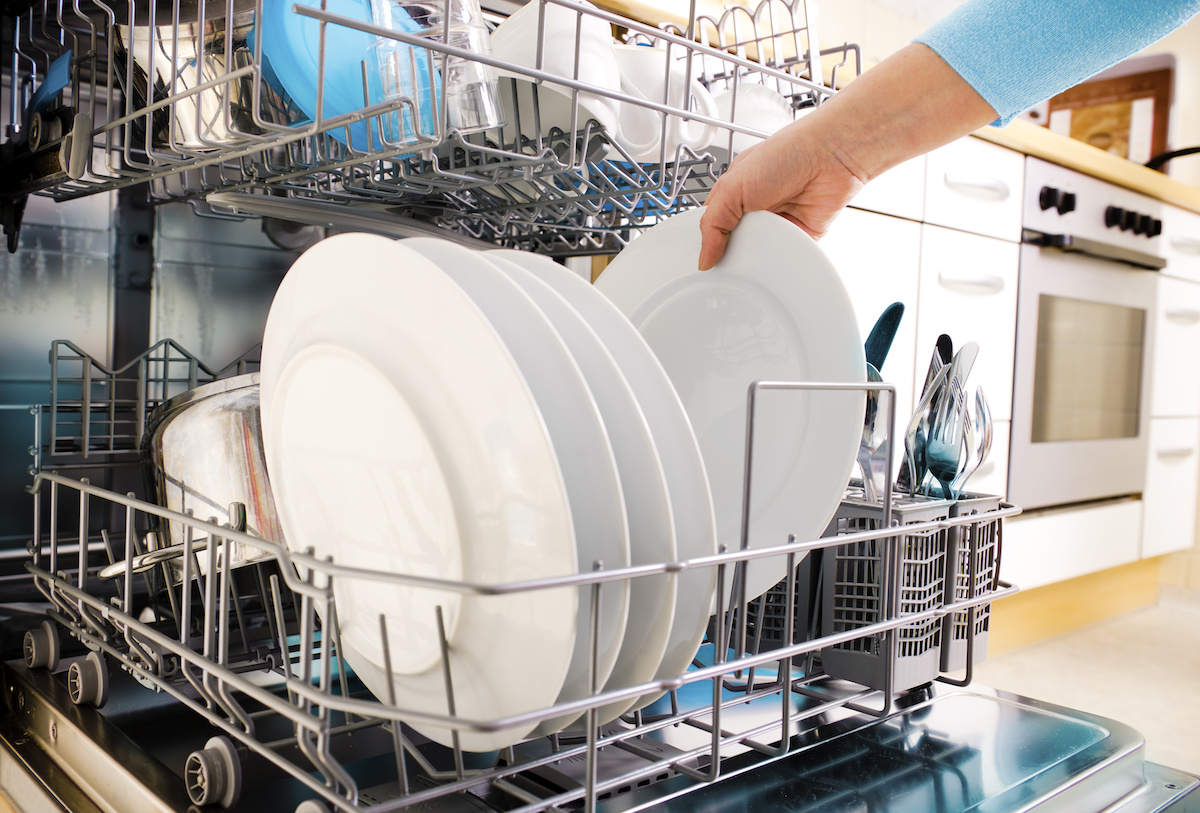Get it Fixed!
We offer same-day or next-day appliance repair of all major brands. For the fastest reply, call us at 727-510-3524.
Mon-Fri: 9 am – 5 pm
Saturday: Appointments Only
Sunday: Closed
Get it Fixed!
We offer same-day or next-day appliance repair of all major brands. For the fastest reply, call us at 727-510-3524.

ould In today’s fast-paced world, dishwashers have become indispensable kitchen appliances, saving us time and effort in the never-ending battle against dirty dishes. Yet, there’s often confusion about how often the dishwasher should run its cycle. Some believe in using it after every meal, while others prefer letting dishes pile up before running your dishwasher.
In this article, we’ll dive deep into the factors influencing dishwasher usage frequency and provide practical recommendations to help you strike the perfect balance between:
Below are just a few of the factors that may influence how often you run your dishwasher.
The number of people living in your household plays a significant role in determining how often you should run your dishwasher.
Larger families with more members will naturally generate more dirty dishes, necessitating more frequent dishwasher usage. For such households, running the dishwasher daily or every other day might be the most suitable option.
Consider how many meals you cook and eat at home each day. Frequent cooking and eating at home generate more dishes to clean.
If you find yourself using a significant number of dishes throughout the day, running the dishwasher daily might be the best approach.
Dishwasher size and efficiency are crucial factors to consider when deciding on usage frequency.
High-capacity dishwashers can handle more dishes in a single cycle, allowing for less frequent runs. On the other hand, smaller, more efficient dishwashers might necessitate running the dishwasher more often, but they consume less water and energy per cycle.
Striking a balance between convenience and environmental responsibility is essential. If water and energy conservation are priorities for you, you might prefer running the dishwasher less frequently, such as every other day or twice a week, and ensuring that it is fully loaded before each cycle.

Dishwashing is typically on an as-needed basis, but below are a few frequency recommendations.
Running the dishwasher daily is recommended for households with a large number of occupants or those who have heavy dish usage due to frequent cooking and dining at home.
Doing so ensures that dishes remain clean, and food residues don’t harden, making them more challenging to clean later. Additionally, it promotes good hygiene and helps prevent the growth of bacteria and unpleasant odors.
To maximize load efficiency, make sure to stack dishes appropriately, separating larger items from smaller ones, and place them according to the dishwasher’s recommended loading instructions.
Be mindful not to overload the dishwasher, as it can affect the cleaning performance and potentially lead to damage over time.
Running the dishwasher every other day strikes a balance between convenience and efficiency. This frequency is suitable for medium-sized households with moderate dish usage.
To make this approach effective, ensure that you rinse dishes and scrape off excess food particles before loading them into the dishwasher. Pre-rinsing prevents food debris from hardening on dishes between cycles, making cleaning easier.
For those who opt for this frequency, it’s essential to store dishes appropriately between cycles to prevent potential foul odors or pest problems. Utilizing a rinse aid can also help:
For individuals, couples, or small households with infrequent dish usage, running the dishwasher twice a week might be sufficient.
However, be cautious not to leave dishes with food residues for too long, as this can lead to unpleasant smells and encourage the growth of bacteria. Pre-cleaning or soaking dishes with stubborn stains before loading them into the dishwasher is advisable to ensure effective cleaning.
When running the dishwasher at this frequency, make sure to utilize the appropriate dishwasher settings, such as an eco-friendly or light-wash cycle, to conserve water and energy.
Taking care of your dishwasher is essential to ensure its optimal performance and longevity. Regular maintenance not only helps prevent issues and repairs but also contributes to better cleaning results and energy efficiency.
Here are some practical tips to maintain your dishwasher and extend its lifespan:
Overusing the dishwasher by running it too frequently or not maintaining it properly can lead to wear and tear, affecting its performance and lifespan.
Signs of overuse might include:
On the other hand, underusing the dishwasher or leaving dishes with food residues for an extended period can lead to:
Insufficient dishwasher usage might also lead to higher water and energy consumption per dish cleaned, reducing overall efficiency.

If you encounter any issues with your dishwasher’s performance, there are some common troubleshooting steps you can take.
First, check for clogs in the drainage system and remove any debris that might be causing blockages. Ensure the dishwasher’s spray arms are clean and rotating freely. Shyou notice issues with drying, consider adjusting the rinse aid dosage or using a different detergent.
If problems persist, consult the dishwasher’s user manual for specific troubleshooting tips or seek professional repair assistance.
If you’re in Pinellas County, Florida, or a surrounding area, give our team at Gulf Coast Appliances a call! We are waiting and ready to help solve any issue you are having with your major appliances.
Determining how often to run your dishwasher requires considering several factors, including:
Running the dishwasher daily, every other day, or twice a week can all be viable options, depending on your specific circumstances and preferences.
Remember that proper maintenance is crucial for your dishwasher’s longevity and efficient performance, regardless of your chosen usage frequency.
By following the guidelines outlined in this article and adopting eco-friendly practices, you can strike the perfect balance between convenience, efficiency, and sustainability, ensuring that your dishwasher remains a reliable and valuable kitchen companion for years to come.